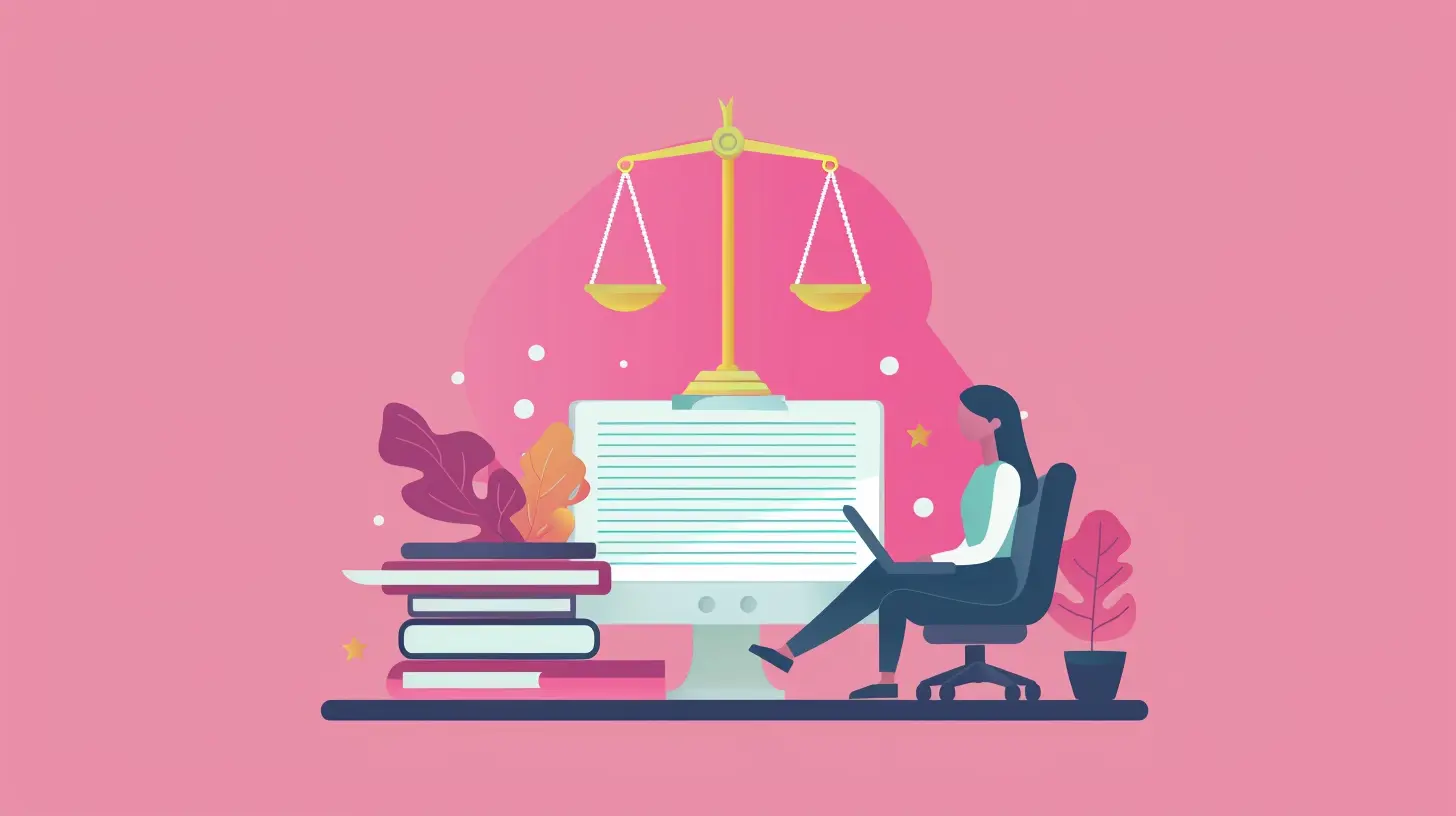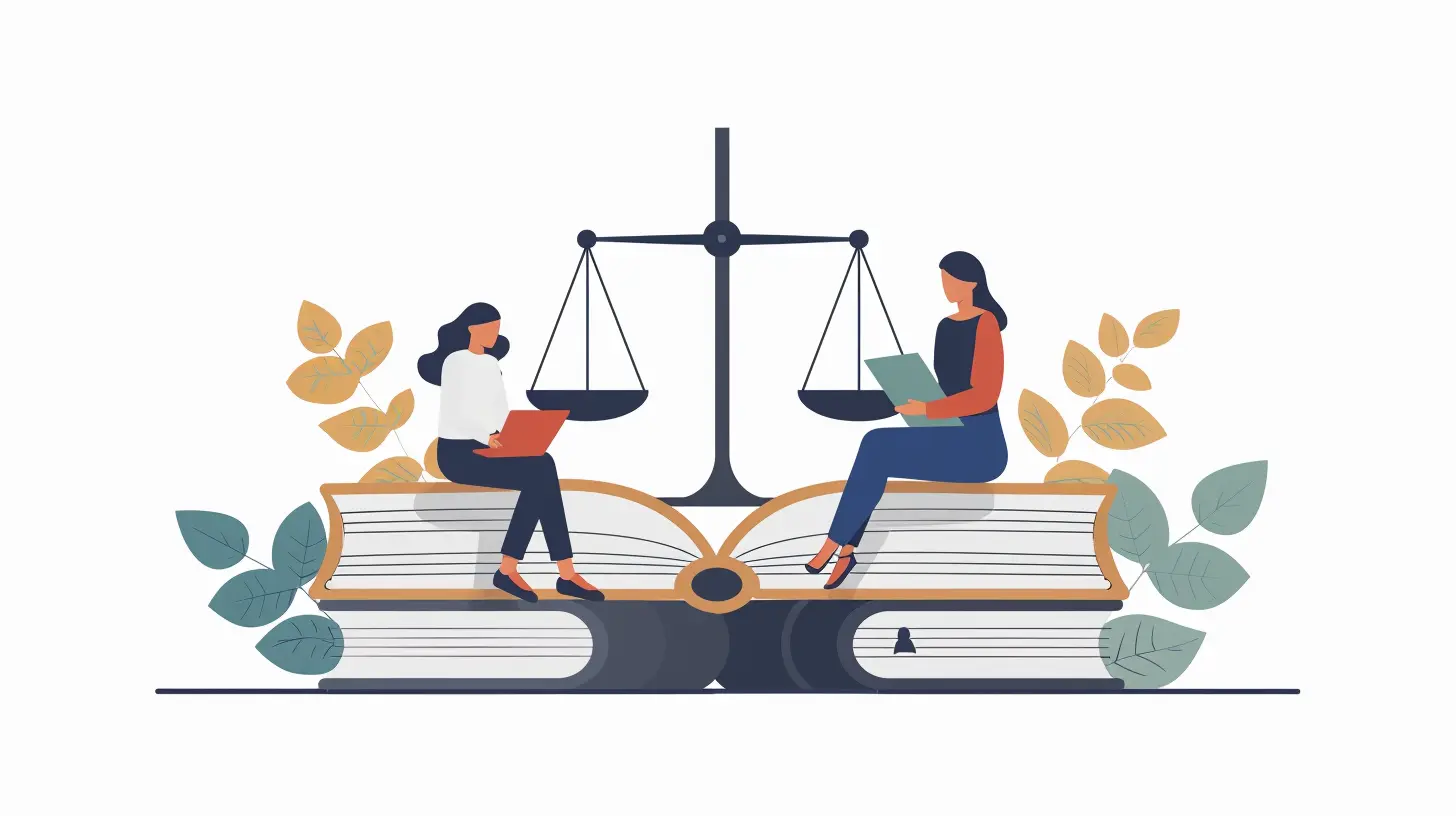Legal Aspects of Freelancing: What You Should Know
22 May 2025
The freelancing world is a vast and exciting place. You set your own hours, handpick your clients, and sip coffee while working in your pajamas—what’s not to love, right? But in the hustle of chasing clients and juggling deadlines, have you ever paused to think about the legal aspects of freelancing? Spoiler alert: it’s a big deal.
When you’re a freelancer, you’re not just your own boss—you’re also your own HR department, accountant, and legal team. And trust me, neglecting the legal side of things can come back to bite you. Let’s dive into the crucial legal stuff every freelancer should know.
1. Freelancing and the Law: What’s the Deal?
Freelancing isn’t just a side hustle or a “do-it-when-you-can” gig—it’s a legitimate form of self-employment. This means you’re running your own business, even if it’s just a one-person operation. And like any business, you need to follow certain legal rules.Here’s the key takeaway: As a freelancer, you have responsibilities that employees simply don’t have. No company HR team is going to swoop in to handle contracts or tax filings for you. You’re in charge of ensuring that your freelancing journey stays on the right side of the law.
2. The Importance of Contracts (Yes, You NEED Them)
If there’s one rule you should tattoo on your freelancing soul, it’s this: always have a contract. I get it—contracts may sound stiff and corporate for a chilled-out freelancer vibe, but they are your ultimate safety net.What Should a Freelance Contract Include?
A good contract doesn’t have to be 10 pages long. Keep it simple but thorough. Here’s what you need to include:- Scope of work: What exactly are you delivering? Be as specific as possible.
- Payment terms: When and how will you get paid? Include late fees if applicable.
- Deadlines: Spell out the timeline for the project and delivery milestones.
- Ownership of work: Who owns the rights to your work after completion?
- Termination clause: What happens if either party wants to bail out early?
Think of a contract as a map. It shows the way forward, but also prepares you for detours along the way. Without it, you’re driving blind.
3. Taxes: Adulting 101
You don’t need to be a tax expert, but you do need to understand the basics. Taxes are the not-so-glamorous part of freelancing, but ignoring them is like ignoring a leaky faucet—it’s going to flood your house eventually.Self-Employment Taxes
As a freelancer, you’re responsible for your own taxes. Most countries require freelancers to:- Report all earnings from clients.
- Pay income tax based on your total earnings.
- Pay self-employment tax (yes, this means covering things like Social Security and Medicare yourself in the U.S.).
Pro Tip:
Set aside a percentage of every payment you receive for taxes. A good rule of thumb is 20% to 30%. That way, you won’t have a heart attack come tax season.
4. Business Registration: Do You Need It?
This depends on where you live and how you operate. In many places, you can freelance without formally registering a business. But in some cases, registering as a sole proprietor, LLC (Limited Liability Company), or any other business structure might be beneficial. Why? Two big reasons:1. Liability protection: If something goes wrong, your personal assets are safer under certain business structures (like an LLC).
2. Credibility: Some clients take you more seriously if you’re an official business entity.
It’s worth spending a few hours researching this or consulting with a lawyer—think of it as an investment in your future.
5. Intellectual Property: Who Owns What?
This is a big one, especially if you’re in creative fields like writing, graphic design, or photography. Who owns the work you produce—the client or you? This needs to be crystal clear in your contract.Key Points to Remember:
- Work-for-hire agreements: If your client requests one, you’re likely transferring all rights of your work to them. Make sure the price reflects this.- Portfolio use: Can you showcase the work in your portfolio? Don’t assume—it needs to be in writing.
- Copyrights: If you retain rights to your work, you can license it out to multiple clients. It’s like renting out your car instead of selling it.
6. Getting Paid: Avoid the Nightmare of Chasing Invoices
Ah, the dreaded unpaid invoice. It’s every freelancer’s worst nightmare. To avoid this, you need to be proactive.Tips for a Smooth Payment Process:
- Upfront payments: Ask for a percentage of the payment before you start. It shows commitment on both sides.- Payment terms: Clearly state your payment terms in the contract. For example, “Payment must be made within 30 days of the invoice date.”
- Late fees: Include penalties for late payments. Think of it as a gentle nudge to your client.
And yes, sometimes things still go sideways. In that case, you might need to consider sending formal demand letters or even pursuing small claims court. Hopefully, it doesn’t come to that—but it’s good to know your options.
7. Freelance Laws Differ by Location
Freelancing laws aren’t one-size-fits-all; they vary depending on your country, state, or region. For instance:- In the U.S., freelancers are considered independent contractors. You’ll likely need to provide clients with a W-9 and track 1099 forms for tax purposes.
- In the European Union, the GDPR (General Data Protection Regulation) affects how you handle client data.
- Some countries require freelancers to pay VAT (Value-Added Tax) on top of their services.
Do some research about the laws in your location. Better yet, consult with a local attorney or accountant who specializes in freelance work.
8. Insurance: Protecting Yourself and Your Work
When you think of insurance, you might picture cars or houses—but guess what? Freelancers can benefit from insurance too. Depending on your field, you may need:- General liability insurance: Covers accidents or damages related to your work.
- Professional liability insurance (errors & omissions): Covers you if a client claims your work caused them financial loss.
- Health insurance: As a freelancer, you’ll likely need to purchase this independently.
It might feel like an extra expense, but consider it a safety net for when life throws a curveball at you.
9. Protecting Client Data: Why It Matters
Depending on the type of work you’re doing, you might handle sensitive client data—like emails, passwords, or financial info. Don’t treat this lightly.How to Keep Client Data Safe:
- Use secure tools for communication and file sharing (e.g., encrypted email or platforms like Dropbox).- Avoid working on public Wi-Fi without a VPN.
- Include a confidentiality clause in your contract.
In today’s digital world, losing a client’s trust over a data breach can sink your reputation. Don’t let it happen.
10. Stay Updated on Laws and Trends
Freelance laws aren’t static—they evolve over time. For instance, in some places, discussions about classifying freelancers as employees are gaining momentum (looking at you, California’s AB5 law). As a freelancer, it’s essential to stay informed.Join forums, read industry blogs, or work with a legal consultant who can alert you to changes that might affect your freelancing business.
Wrapping Up
Freelancing might feel like the wild west at times, but it doesn’t have to be legally daunting. By understanding contracts, taxes, intellectual property, and other legal must-knows, you’re not just protecting yourself—you’re setting yourself up for long-term success.Remember, every great freelancer was once a newbie swimming in the sea of legal jargon. Take it one step at a time. And if in doubt? Don’t hesitate to seek help from a legal expert.
all images in this post were generated using AI tools
Category:
FreelancingAuthor:

Rosa Gilbert
Discussion
rate this article
3 comments
Misty Hamilton
Freelancing: where the only thing scarier than deadlines is deciphering contracts! Remember, legal jargon is just English wearing a suit. Wear your reading glasses!
June 4, 2025 at 4:05 AM

Rosa Gilbert
Great analogy! It's crucial to understand contracts—clarity can save you from many headaches down the line. Always read thoroughly!
Lisette McLain
This article raises fascinating points about the legal landscape of freelancing! I wonder how freelancers can effectively navigate contracts and client relationships to protect themselves. Are there common pitfalls they should be aware of? Looking forward to more insights on this evolving field!
May 24, 2025 at 1:05 PM

Rosa Gilbert
Thank you for your comment! Freelancers should prioritize clear contracts, understand payment terms, and maintain open communication with clients to avoid common pitfalls like scope creep and late payments. I'll definitely explore these topics further in upcoming articles!
Jace Tucker
Great insights! Understanding the legal aspects of freelancing empowers you to navigate your career confidently and protect your passion. Keep shining and thriving!
May 24, 2025 at 4:26 AM

Rosa Gilbert
Thank you! I'm glad you found the insights valuable. Empowering freelancers through knowledge is key to success!



